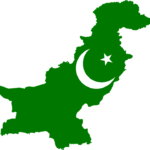Religion has long been a controversial subject, and in Iran, it has taken a dark turn with the recent surge in executions for blasphemy. In a shocking display of theocracy gone awry, the Islamic Republic of Iran has hanged two men convicted of blasphemy, sparking outrage both within the country and worldwide. The tragic incident sheds light on the oppressive nature of religious authorities and highlights the urgent need for critical conversations about the role of religion in society.
The Grim Reality of Iran’s Executions
Iran has gained notoriety as one of the world’s top executioners, and the numbers are deeply unsettling. According to the Oslo-based group Iran Human Rights, the country has executed at least 203 prisoners since the beginning of this year alone. While the authorities may argue that these executions deter crime, they remain blind to the human rights implications and the alarming rise in state-sanctioned violence.
The Unseen Blasphemy Executions
In a country where religious dogma holds a tight grip on society, blasphemy remains a highly sensitive and punishable offense. However, it is essential to acknowledge that executing individuals for blasphemy is rare, as past cases have seen sentences reduced by authorities. But now, with recent months of unrest, Iran has taken an even more aggressive stance, resorting to the harshest of punishments.
The Tragic End of Yousef Mehrad and Sadrollah Fazeli Zare
Yousef Mehrad and Sadrollah Fazeli Zare were the latest victims of Iran’s oppressive blasphemy laws. Accused of being involved in a Telegram channel named “Critique of Superstition and Religion,” these two men found themselves at the mercy of a flawed system. The irony here lies in the fact that these men dared to question superstition and religion, exercising their right to freedom of thought and expression. Their courage to challenge dogmatic beliefs cost them their lives.
Facing months of solitary confinement, cut off from their families and the outside world, Yousef and Sadrollah were subjected to psychological torment. These actions only reinforce the perception that authoritarian theocracies, such as Iran, become more desperate when their grip on power weakens, leading to extreme acts.

Yousef Mehrad and Sadrollah Fazeli
Religious Fundamentalism and Human Rights
The heart of the issue lies in the toxic mix of religious fundamentalism and state power. The Mizan news agency of Iran’s judiciary confirmed the executions, claiming that the men insulted Islam’s Prophet Muhammad and promoted atheism. However, the authenticity of the evidence and the legitimacy of the trial process have come under question.
The tragedy of these executions highlights the urgency for open dialogue and reform within religious institutions. When dogma reigns supreme, freedom of speech and thought are crushed underfoot, and human rights suffer immeasurably.
Conclusion
The recent executions of Yousef Mehrad and Sadrollah Fazeli Zare in Iran are stark reminders of the dangerous consequences of religion intertwining with state power. The world must take note of the human rights abuses occurring in the name of religious dogma.
We must strive to foster critical discussions about religion, encouraging societies towards tolerance, acceptance, and empathy. Only then can we break free from the chains of oppressive dogma and build a world where human rights and individual freedoms are cherished above all else. The path to progress lies in acknowledging and learning from the past while striving for a future where justice and compassion prevail.
Abuse evolution Greg Locke Hate Preacher Islam LGBTQ+ Life Living Waters Mars Mental Health news Pat Robertson Ray Comfort Religion Science Supreme Court Taliban
Latest Posts
- Complex Life May Have Evolved More Than Once — And Why That Should Thrill Anyone Who Values Reality Over Revelation
- Teenager Receives Death Penalty in Pakistan for Blasphemy
- A Tragic Tale of Intolerance: The Killing of Shazia Imran
- Bolivian Prosecutors Launch Probe into Catholic Church Abuse Scandal
- The Dark Side of Dogma: Executions for Blasphemy Surge in Iran





